Gail Wein | 4 SEP 2025
“Are you going to BISQC?” asked a woman waiting for an airport bus headed to Banff, Alberta, a resort town about 129 km (80 miles) west of Calgary in the Canadian Rocky Mountains. She was referring to the Banff International String Quartet Competition, but I heard “bisque” as in creamy soup. Well, it’s like soup, she told me, in that you’re swimming in a rich, warm bath of music for days.
That was my introduction to BISQC. From that moment on, I and about 500 other people spent a week listening to hours upon hours of string quartet performances. Nine ensembles from around the world competed for the top prize of $25,000 CAD, plus tours and residencies in the United States and Europe.
BISQC’s home is the Banff Centre for Arts and Creativity, an institution whose grounds are nestled amongst towering mountains in what must be one of the most picturesque locations in the world. The Centre offers programs and residencies in over a dozen creative disciplines, it is home to one of the largest mathematics think tanks in the world, and it served as the International Media Centre for the 2025 G7 Summit.
This was the 15th edition of BISQC, held every three years since 1983. Past winners, including the Dover, St. Laurence, and Jupiter Quartets, have enjoyed major careers. Barry Shiffman has been the Competition Director since 2006.
It’s more than a competition; it’s cultural tourism. Many of the attendees I met have attended the competition before – some multiple times – and they travel the world on other leisure trips to enjoy chamber music, opera, and other performing arts. The cost to attend BISQC is comparable to that of a week-long cruise. And, like a cruise, the lodging, meals, and entertainment are all part of the package. A community forms and friendships develop, as these music lovers are together in the daily rhythm of breakfast-performance-lunch-performance-dinner-performance.
For some, it’s also an interactive experience, as attendees who play an instrument at any level are invited to casually read through chamber music with each other. One avid amateur likened the experience to sports. “It’s like we’re staying in the Olympic Village with the athletes and coaches, and we get to play in pick-up games.”
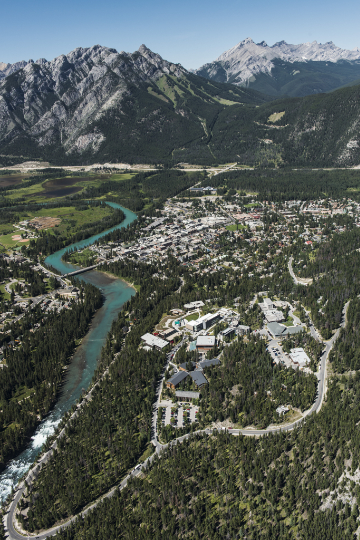
Aerial view of Banff Centre for Arts and Creativity (credit: Don Lee)
The Jenny Belzberg Theatre at the Banff Centre was abuzz with palpable excitement on August 25 as the first of 14 concerts got underway. On stage, a projection of a local mountain landscape served as a backdrop for the musicians, a reminder of the stunning scenery that lay just outside the concert hall doors. Once the music began, I noticed that this was one of the quietest and most attentive audiences I’ve been part of in a long time.
Thus commenced the competition of nine quartets at the peak of their prowess: Viatores Quartet (from Berlin), Arete Quartet (Seoul), Cong Quartet (Hong Kong), Quatour Magenta (Paris), Quatour Elmire (Paris), Quartett HANA (Munich), Nerida Quartet (Bremen), Quartet KAIRI (Salzburg), and Poiesis Quartet (Cincinnati).
There were four rounds of contrasting repertoire: 21st-century and Haydn, Romantic, Beethoven/Schubert + 20th-century, and the world premiere of a work written especially for this competition by the Canadian-American-Hungarian composer Kati Agócs.
Each ensemble gave spectacular performances, and each had its own distinctive image and approach to the music. It’s astounding how much variation there can be in style, technique, and execution by the same set of four instruments. That was especially noticeable in the round in which every group performed Agócs’s composition, all in the same concert.
Unquestionably, the most distinctive of all was the group that was awarded the top prize, Poiesis Quartet, the only quartet from the United States in the competition. Their flamboyant attire and dynamic stage presence captured the attention of both the audience and the jury.
From the beginning, their choices were bold. In the first round, they performed a 21st-century work – Sky Macklay’s Many Many Cadences – before their Haydn quartet, the only competitor to arrange their program in that order. They gave Macklay’s work a solid and intense reading, performing with a great deal of panache. In Haydn’s String Quartet Op. 71 No. 2, they dug in with gusto, making the most of this conversation between the individual players, and set out with breakneck speed in the final movement. In their performance of Agócs’s Rapprochement, they showed a confidence that not all of the other quartets had. In fact, in addition to the grand prize, they also took home the Canadian Commission Prize, in honor of the R.S. Williams & Sons Company, for the best performance of that work.
In the Beethoven + 20th century round, Poiesis knocked it out of the park with their riveting performance of Bartok’s String Quartet No. 5, which was tight in all the best ways. Especially notable was the conversation among the four instruments in the slow movement, as well as the intensity of the final movement, which reminded me of the roar of an airplane. Poiesis’s unabashedly bold programming choices for their performance in the final round included music by Jerod Impichchaachaaha’ Tate, Brian Raphael Nabors, Joe Hisaishi, and Kevin Lau. In the post-announcement press conference, they mentioned they are moving toward completely contemporary programs, as the repertoire in their finals round demonstrated.
The members of the Poiesis Quartet – violinists Sarah Ying Ma and Max Ball, violist Jasper de Boor, and cellist Drew Dansby – met at the Oberlin Conservatory and are currently a graduate ensemble at Cincinnati Conservatory of Music.
Arete Quartet from Seoul, Korea, earned the second-place award, which included $12,000 CAD cash. The third-place laureate was Quartet KAIRI, who also captured the R.S. Williams & Sons Haydn Prize for the best performance of a Haydn quartet.
The finalists were chosen by a seven-member jury representing some of the top names in chamber music: Marie Chilemme, Jonathan Crow, Eugene Drucker, Honggang Li, Milena Pajaro-van de Stadt, Eckart Runge, and David Ying.
You can watch all of the performances on demand on the BISQC website. The 16th BISQC will be in September 2028. ■
EXTERNAL LINKS:
- Banff Centre for Arts and Creativity: banffcentre.ca
- BISQC 2025 Competing Quartets: banffcentre.ca/bisqc-2025-competing-quartets

Read more by Gail Wein.
RECENT POSTS
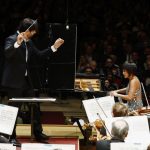 Domingo Hindoyan leads Boston Symphony in fearless Bernstein, Prokofiev, and Copland, pianist Yuja Wang solos with brilliance • 28 Oct 2025
Domingo Hindoyan leads Boston Symphony in fearless Bernstein, Prokofiev, and Copland, pianist Yuja Wang solos with brilliance • 28 Oct 2025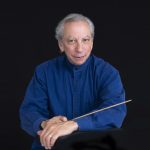 Conductor Arthur Fagen earns strong Italian press for Mozart’s ‘Don Giovanni’ in Jesi and Novara • 27 Oct 2025
Conductor Arthur Fagen earns strong Italian press for Mozart’s ‘Don Giovanni’ in Jesi and Novara • 27 Oct 2025
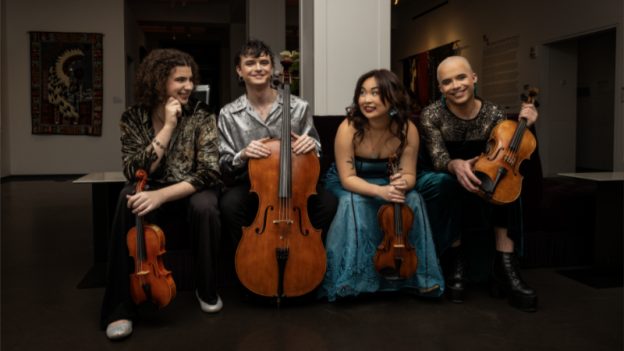


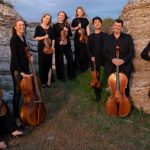
.png)